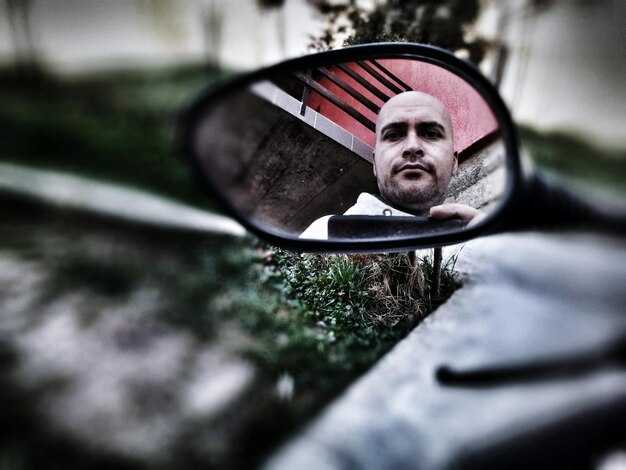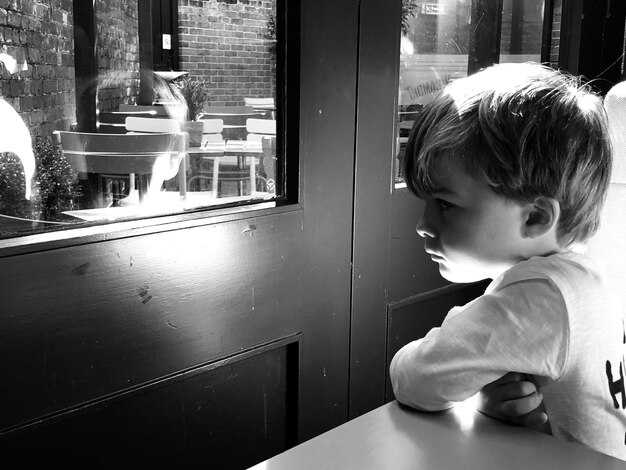Even rats become obsessed when rewards and care are repeatedly mixed with cruelty and isolation, so it’s not surprising that people raised with trauma often fall even harder for someone who one moment professes love and the next boots them out. People without early traumatic experiences tend to read that behavior as abuse by an unstable, selfish person; those with childhood PTSD, however, will often fixate completely on winning that person back, by any means necessary, even if it means lying to themselves. Today’s letter comes from a man I’ll call Roger. He writes: “Hi Anna — I’m 40 and hopelessly in love, or at least stuck in a long-term limerence, with an unavailable 33-year-old. I don’t know how to break free from this.”
Okay, Roger — I’m going to mark a few things you say that I want to return to, but first let’s walk through your story. You describe yourself as someone with ‘good-guy’ tendencies who is anxious and preoccupied. Your mother was obsessive-compulsive, anxious, and very hovering; your father was a cheating alcoholic whom your mother kicked out when you were seven, and since then you had almost no contact. For a long time you didn’t connect those family dynamics to your own wounds, but as therapy has gone deeper you’re beginning to see how they probably feed your constant hunger for acceptance and your need for validation. You also say you were repeatedly rejected in high school, felt isolated and unwanted, and now wonder whether those experiences seeded the adult trauma that drives you into poor choices in partners.
The woman you are attracted to — let’s call her Julie — grew up with a mother who drank but managed to function and a father who worked as a cop and was largely absent, married to his job and always taking overtime. From the attachment-style videos and books you’ve consumed and from the way she behaves toward you, you suspect she has many dismissive-avoidant tendencies. You’ve known each other for roughly ten years, but only been close friends for about three and a half. Julie is the granddaughter of your boss, and you feel like an outsider in that family-run restaurant. She has ten years of sobriety from heroin under her belt; she met what she called her ‘soulmate’ in rehab — she stayed clean, he did not — and he died of an overdose in 2020, leaving her with two children.
About six months after his death you met Julie at the gym and began exchanging texts that turned flirty, even sending pictures. The attraction was obvious, but you were aware that her partner had only passed months earlier, and you didn’t want to come across as predatory. Still, you were deeply interested and felt she reciprocated. At one point you had a conversation that essentially set up the possibility of a friends-with-benefits arrangement whenever she felt ready — strictly physical, she said — because you were someone she trusted and that could be an option when the time was right. The flirtatious texting continued until, abruptly, she stopped responding. Later you learned that her late boyfriend’s best friend had flown in from another state to check on her and the kids; they slept together “one time” and she became pregnant. She later told you that shame was why she cut off contact. That man never went back home.
Roughly six months after the baby was born you had moved on out of necessity. Then she said she wanted to come to one of your fitness classes — at that time you were coaching — and she did, but she brought this man with her. You were back in the role of just a friend. You accepted that and said you’d see her at class. After the session she gave you a big hug and whispered in your ear, “I can’t wait to…” followed by an explicitly sexual comment, brazen and in-your-face. You were told later that she and the man she’d brought were never officially a couple; she insisted they were merely co-parents, even though he had feelings for her.

The whole situation got more complicated. I can only guess that watching me confident — running the class and owning my life — made her realize she still wanted, at minimum, a physical connection with me. After a short while we began what became roughly a six-month friends-with-benefits arrangement. Eventually she told me she couldn’t keep it up because she was starting to develop feelings. I told her I was okay with how things were, though inside I was still angry because earlier, when I thought we might be building something real, she’d chosen to sleep with another guy instead of me. So, you’re starting to get a sense of this woman, right? Then I discovered she’d slept with that guy — and we weren’t even a couple, so I couldn’t call it cheating — but she hadn’t been honest: she was open to sleeping with others. She explained it by saying it had been so long since her boyfriend died that this new guy felt like a safe, no-strings fling because he was moving back across the country anyway — and then, oddly, they ended up pregnant. After that brief fling I let her go, and we agreed to end the friends-with-benefits thing because we didn’t want to ruin the “friendship” — and that’s a big question mark right there about what you mean by friendship. We didn’t want to damage whatever friendship we supposedly had, but things were getting strange as feelings crept in, so we stepped back. It’s funny how “catching feelings” suddenly becomes the poisonous thing, isn’t it? Like caring is a toxin — that’s exactly the kind of thinking that shows how someone’s been manipulated. But we’ll come back to that.
I started seeing someone else: a recently divorced coworker — yes, another poor choice. When she saw I’d moved on, she decided to try a real relationship with me. Both of those “relationships” crashed and burned quickly, and we kept ending up back together, this time consoling one another about our bad choices. Predictable, right? Over the next weeks and months we spent more time together and slowly realized we’d been wanting the same thing that had been right in front of us all along. It wasn’t the right moment — the father of her child had moved in with her during this time — so even if it felt like real love, it couldn’t start then because she was living with another man. Still, we both knew, deep down, we wanted to end up together. If you, Roger, are reading this, I hope you can hear the chaos in it all — the back-and-forth that made no sense. She basically kept me on a string: “I don’t want to be with you now, I’ll keep you close for the future,” that kind of thing.
This dragged on for months until she suddenly told me she didn’t see an endgame for “us.” She said she loved me but didn’t feel romantic love anymore, and it left me devastated. I stopped being able to keep track of the on-again, off-again: she’s into me, she’s not; she’s into me, she’s not. Then she pulled herself entirely out of my life for about nine months, claiming she wanted to give me space to find someone else. Meanwhile, Roger says he never truly moved on and kept trying to keep our friendship — and maybe more — alive. Eventually she returned, saying that watching how committed I was showed her who I am, and we more or less picked up the “endgame” where it had been abandoned. I should point out we hadn’t had sex since the friends-with-benefits period — maybe she feared being vulnerable again, or maybe she’d been intimate with the child’s father; who knows. She insisted she’d never lied, and that since moving in with him they couldn’t stand each other and were basically just co-parenting under the same roof. Fine, that’s their life. But here I am, pouring myself out for someone who lives with another man and is often gone. That’s the part I want you to focus on.
In recent months she’s pulled away again, telling me once more there’s no romantic future. She’s a mother of three with little support, taking classes during the day, exhausted on every level — mentally, emotionally, physically — and my constant anxious behavior became too much for her. Another way to put your anxious behavior is that you weren’t always perfectly agreeable to her treating you like an occasional hookup. Now she barely reaches out and can be quite cold when we do interact, even though, whenever we finally get together in person, the connection between us feels very strong. Let’s pause on that “connection” for a second: what is it that draws me so powerfully to someone I know isn’t good for me? I also feel like I could save her, that I need to protect her after everything she’s been through. It’s weird — maybe it’s my own misery reflected back. I’ve prioritized her needs over my own at every turn, convinced — or perhaps forced myself to believe — that my needs don’t matter. That’s classic “nice guy” territory.
What’s wrong with me? This is what folks describe in No More Mr. Nice Guy by Robert Glover, a book I’d recommend to men who find themselves tolerating poor treatment while trying to rescue someone else. It’s a terrible place to stay — a huge waste of the love you have for someone who might appreciate it. As for her, maybe she’s a love-and-sex addict, maybe she’s reacting to trauma, maybe she has a disorganized attachment style that makes her crave closeness and then push it away. We could analyze her endlessly, but psychologizing a person who mistreats you can be a trap: it becomes an excuse to keep putting up with bad behavior and to keep hope alive when it’s not warranted. You asked why you’re still in love with someone you know is no good. Let’s agree: she isn’t good for you, and she’s not treating people well. I keep picturing those kids with an unstable mother who swings people around emotionally — that instability and manipulation is harmful. Calling this “friendship” is wrong: friends don’t sleep with one another and then push each other away, lie, and toy with feelings. This isn’t a friendship; it’s someone taking energy they want without giving consistent care back. In many ways she’s behaving like an emotional vampire or a romantic shoplifter.
When her partner died — especially when death happens in that tragic, violent way like an overdose — it’s not the right time to jump into relationships. I don’t recommend getting involved with someone so close to a traumatic loss; I’ve been there and it was a disaster. People need time to heal after that kind of trauma. And please don’t fall for the savior fantasy: you aren’t her savior, and you haven’t been doing a very successful job of saving her. We often redirect our compassion outward because we can’t give it to ourselves — that’s the painful pattern. You can rationalize it as you like, but it doesn’t change the fact that you’re giving away what you should be holding for yourself. That tendency could come from your childhood — your mom becoming a single parent when you were seven and dealing with an alcoholic father may have taught you that being the rescuer is your role. That’s a familiar pattern, and it’s exactly the kind of dynamic that No More Mr. Nice Guy talks about. Being a “knight in shining armor” is a fantasy; even “saviors” are flawed humans who make mistakes. A healthier approach is to work on yourself and not sacrifice your happiness and stability for someone who treats you poorly.
You’re caught in a very normal trauma response, but now the past is over and you have the freedom to change how you handle this. You can raise your standards and decide who you allow into your life. What I’ve heard, Roger, is that this woman brings constant drama and it’s proving impossible for you to let go. The right move is to let go completely — not to try to keep a “friendship” that’s really just emotional whiplash. Transitioning from romantic partnership to friendship can work, but only when neither person has lingering romantic feelings. In your case that’s not true, so the friendship route isn’t real. The minute you cut contact for good, you might cry for a time, but then you’ll be free. Suddenly the world opens again and you can meet someone new — ideally not someone who’s recently divorced or acting out sexually. Look for someone who has been single long enough to know themselves, who isn’t spinning lies or manipulating expectations. You’ll be able to show up honestly and see if that person is truly compatible. Dating can improve immediately when you set clear boundaries.
To make that change you have to know what your boundaries are and enforce them. You might consider my dating course — it’s aimed at people with childhood PTSD and offers tough-love guidance on getting that part of your life in order. The course link is always in the description and on my website, crappychildhoodfairy.com. But more important than any course is strengthening yourself so you can walk away from toxic dynamics. Cultivate a baseline of happiness and confidence: learn to find little flashes of joy even when things are hard, so you can make brave, sometimes heartbreaking choices from a place of inner steadiness. To help with that, there’s a free download I put together — 11 practical tips to lift your mood and feel happier right now. Use that to start building a more resilient foundation. I will see you very soon.


 How Trauma Bonds Wreck Your Mental Health">
How Trauma Bonds Wreck Your Mental Health">

 Si vous ètes le DONATEUR, ne Négligez PAS CELA !">
Si vous ètes le DONATEUR, ne Négligez PAS CELA !">
 Comment savoir quand il est temps de quitter votre relation « sûre »">
Comment savoir quand il est temps de quitter votre relation « sûre »">
 Si Vous Remarquez Ces Comportements, Fuyez — Ils Sont Toxiques">
Si Vous Remarquez Ces Comportements, Fuyez — Ils Sont Toxiques">
 Arrêtez de laisser votre traumatisme dicter vos prises de décision.">
Arrêtez de laisser votre traumatisme dicter vos prises de décision.">
 ">
">
 La raison de votre enfance pour laquelle vous vous sentez toujours vide à l'intérieur">
La raison de votre enfance pour laquelle vous vous sentez toujours vide à l'intérieur">
 Les 5 STADES CHOQUANTS d’une personne fuyante qui revient (Personne ne vous dira #5)">
Les 5 STADES CHOQUANTS d’une personne fuyante qui revient (Personne ne vous dira #5)">
 Why Avoidants Disrespect You and The Secret Battle They’re Fighting | Avoidant attachment style">
Why Avoidants Disrespect You and The Secret Battle They’re Fighting | Avoidant attachment style">
 Mon partenaire est-il un narcissique ? (Est-ce important)">
Mon partenaire est-il un narcissique ? (Est-ce important)">
 Règles de rencontres pour vous aider à ARRÊTER de TOUT faire pour votre partenaire">
Règles de rencontres pour vous aider à ARRÊTER de TOUT faire pour votre partenaire">